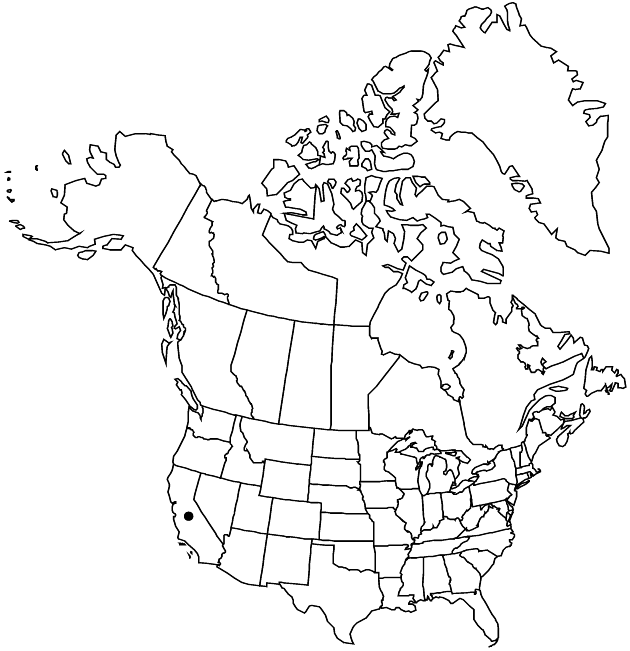Layia fremontii
Mem. Amer. Acad. Arts, n. s. 4: 103. 1849.
Plants 8–40 cm (self-incompatible); not glandular, not strongly scented. Stems not purple-streaked. Leaf blades lanceolate or oblanceolate to linear, 6–70(–90) mm, margins (basal leaves) lobed (pinnatifid). Involucres hemispheric to depressed-hemispheric, 4–11 × 3–11+ mm. Phyllaries 3–15, apices often longer (sometimes shorter) than folded bases. Paleae subtending ± all disc florets. Ray florets 3–15; laminae proximally yellow, distally white or light yellow, 5–18(–23) mm. Disc florets 4–100+; corollas 3.5–4.5 mm; anthers ± dark purple. Ray cypselae glabrous. Disc pappi of 9–12 white to tawny, lance-attenuate, ± equal scales 2–5 mm, each neither plumose nor adaxially woolly. 2n = 14.
Phenology: Flowering Feb–May.
Habitat: Grasslands, meadows, open woodlands, disturbed sites, often valley bottoms, swales, edges of vernal pools, usually on heavy or shallow soils, sometimes serpentine
Elevation: 10–800 m
Discussion
Layia fremontii occurs in the Great Valley and adjacent foothills of the Cascade Range and Sierra Nevada.
Selected References
None.
